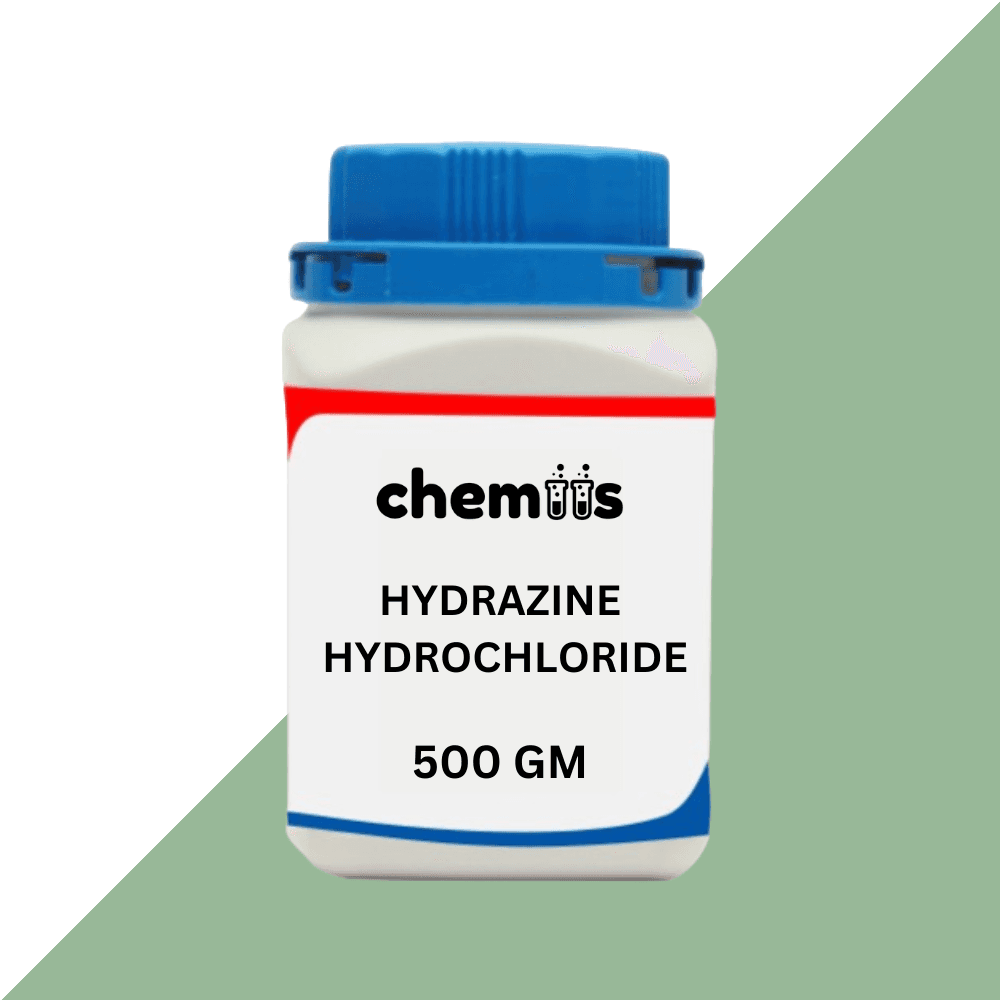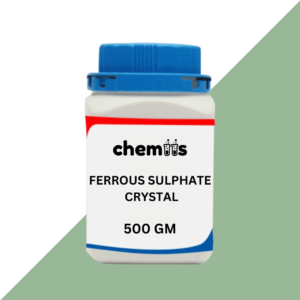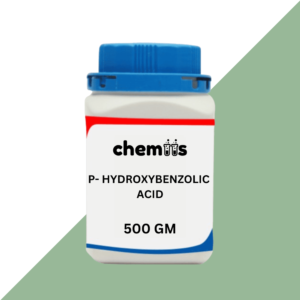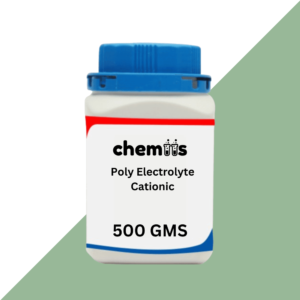Hydrazine Hydrochloride (N2H4·HCl) is an important chemical compound that plays a significant role in various industries due to its reactivity and versatility. It is a colorless, corrosive liquid with a distinct ammonia-like odor, widely used in chemical synthesis, pharmaceutical applications, water treatment, and fuel cells. Hydrazine Hydrochloride is primarily the hydrochloride salt of hydrazine (N2H4), a compound that is itself well-known for its use as a reducing agent and a key building block in the production of various chemicals.
While hydrazine itself is highly reactive and toxic, Hydrazine Hydrochloride is more stable and easier to handle, making it suitable for various applications. The compound is used in industrial manufacturing, pharmaceuticals, agriculture, and energy generation systems.
Applications of Hydrazine Hydrochloride
- Chemical Synthesis:
- Production of Hydrazine Derivatives:
Hydrazine Hydrochloride is a precursor in the synthesis of various hydrazine derivatives, such as hydrazones, azides, and hydrazides. These derivatives are used in the production of a wide range of chemicals, including pharmaceuticals, agrochemicals, and dyes. - Polymerization Reactions:
Hydrazine Hydrochloride is also used in polymer chemistry, where it serves as a reducing agent in the polymerization of certain compounds. For example, it is used in the synthesis of polyurethane foams and rubber accelerators. - Blowing Agents for Foams:
Hydrazine Hydrochloride is used as a blowing agent in the production of foamed plastics, particularly in the polyurethane industry, where it helps in the formation of foamed materials with controlled expansion.
- Production of Hydrazine Derivatives:
- Pharmaceutical Industry:
- Pharmaceutical Synthesis:
In the pharmaceutical industry, Hydrazine Hydrochloride is used to synthesize a range of bioactive compounds, including antifungal agents, antitubercular drugs, and anti-cancer medications. It serves as a precursor in the creation of hydrazine derivatives that exhibit antimicrobial, antioxidant, and anti-inflammatory properties. - Treatment for Tuberculosis:
Hydrazine derivatives, especially isoniazid (a compound derived from hydrazine), are critical in the treatment of tuberculosis. Hydrazine Hydrochloride’s role as a building block in these treatments is vital to the development of antimicrobial therapies.
- Pharmaceutical Synthesis:
- Energy and Fuel Cells:
- Fuel for Rocket Propellants:
Hydrazine Hydrochloride is well-known for its role in rocket propulsion systems as a fuel component. It is used in hydrazine-based propellants for space exploration and satellite thrusters, where its high energy release makes it effective in thrusters that require precise control. - Fuel Cells:
Hydrazine Hydrochloride can be used in certain types of fuel cells to generate power. In hydrazine fuel cells, it serves as a fuel source that undergoes oxidation to produce energy in the form of electricity. These cells are used in military and space applications where reliable power generation is essential.
- Fuel for Rocket Propellants:
- Water Treatment:
- Oxygen Scavenger in Boilers:
Hydrazine Hydrochloride is used in water treatment systems, particularly in boilers and cooling systems, to remove dissolved oxygen. By reducing oxygen content, it prevents the formation of rust and corrosion in metal piping and other components. This is crucial in industries like power plants, where maintaining the integrity of boiler systems is vital. - Wastewater Treatment:
Hydrazine Hydrochloride is also utilized in wastewater treatment to help in reducing nitrates and other contaminants in the water. Its role as a reducing agent makes it effective in removing harmful substances, ensuring that treated water meets environmental standards.
- Oxygen Scavenger in Boilers:
- Agriculture:
- Pesticide Formulation:
Hydrazine Hydrochloride plays a role in the formulation of certain agricultural chemicals, including pesticides and herbicides. Hydrazine derivatives are used to create compounds that can target pests, fungi, and weeds that affect crop yield. - Growth Regulators:
Some plant growth regulators are synthesized using Hydrazine Hydrochloride. These regulators influence the growth patterns and development of crops, enhancing productivity and optimizing crop yields in agriculture.
- Pesticide Formulation:
- Textile Industry:
- Dye Manufacturing:
Hydrazine Hydrochloride is used in the dye industry to produce certain types of azo dyes. These dyes are commonly used to color fabrics and textiles, and hydrazine derivatives help in the synthesis of bright, vibrant colors that are essential in the fashion and textile industries.
- Dye Manufacturing:
- Metal Treatment and Corrosion Inhibition:
- Corrosion Inhibitor:
Hydrazine Hydrochloride is used in metal treatment as a corrosion inhibitor. It prevents rusting and oxidation in various metals, particularly in industrial machinery and marine vessels, where exposure to water can accelerate degradation.
- Corrosion Inhibitor:








Uday Thakur (verified owner) –
Quality exceeded expectations.
Chirag Vora (verified owner) –
Found what I was looking for.
Kavita Nair (verified owner) –
Fast response to queries.
Nivedita Gopal (verified owner) –
Product matches the description.
Vipin Giri (verified owner) –
Very convenient service.
Rupal Vyas (verified owner) –
Received in good time.
Aarti Shukla (verified owner) –
Great for bulk purchase.
Darshan Solanki (verified owner) –
Consistent quality.
Varun Raghavan (verified owner) –
Clean and clear instructions.
Shruti Bhandari (verified owner) –
Received in good time.
Ritesh Jain (verified owner) –
Smooth ordering process.
Ayesha Rizvi (verified owner) –
Nicely organized website.
Akash Tripathi (verified owner) –
Easy to find what I wanted.
Rupal Vyas (verified owner) –
Consistent on every order.
Asha Fernandes (verified owner) –
Excellent packaging.
Meenal Shah (verified owner) –
Great experience overall.
Zoya Merchant (verified owner) –
Neat and secure packaging.
Tanvi Purohit (verified owner) –
Everything went smoothly.
Aarav Mehta (verified owner) –
Simple checkout process.
Anjali Prasad (verified owner) –
Reliable chemical supplier.